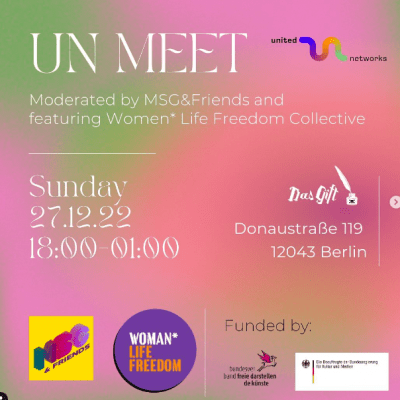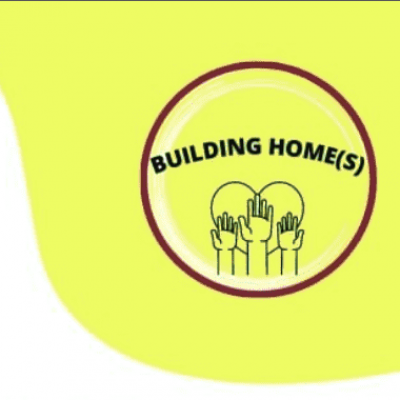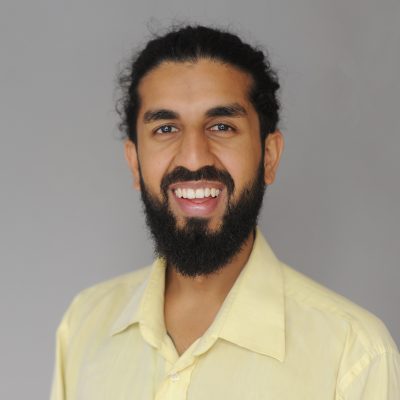Article
Purpose
Mareen Brosinsky’s Action Project aimed to raise awareness of the harsh realities faced by refugees and asylum seekers in Australia. Australia has one of the strictest immigration policies for refugees and asylum seekers in the world, including active deterrence advertising campaigns, boat interceptions by the coast guard, and indefinite detention on offshore islands. Human rights abuses in detention facilities range from lack of access to basic necessities to harassment, abuse, and violence. Despite criticism from international organizations, there is little awareness of this issue within Australian mainstream media and public discourse.
Through a film screening of a documentary on the topic, followed by a panel discussion featuring experts in refugee law, a lawyer, and a refugee with personal experience, the project sought to provide a space for critical engagement and awareness. The goal was to offer access to information and perspectives from those with expertise and lived experience in the hopes of encouraging greater understanding and advocacy for these vulnerable populations.
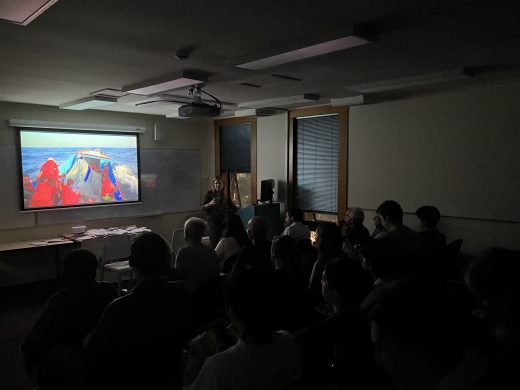
Inspiration
Being from Berlin and having lived and worked in Brussels and Berlin amidst the large migration flow from Syria in 2015 and 2016, Mareen was used to being exposed to an open discourse on how to manage such a situation with the shared goal of providing a warm, welcoming and safe space for people who have fled war and terror, and helping them find a new place which they can call home. However, the lack of transparency and civil society in Australia’s handling of refugees was shocking to her. Despite being a continent with a population of 26 million people, Australia only agreed to take in 12,000 refugees since the outbreak of the Syrian war. As a university lecturer in international relations, Mareen found that her students had little knowledge of Australia’s policies, including the low intake and detention process. Through her research, she discovered that the issue is not widely discussed, and NGOs and local initiatives supporting refugees are not heard enough.
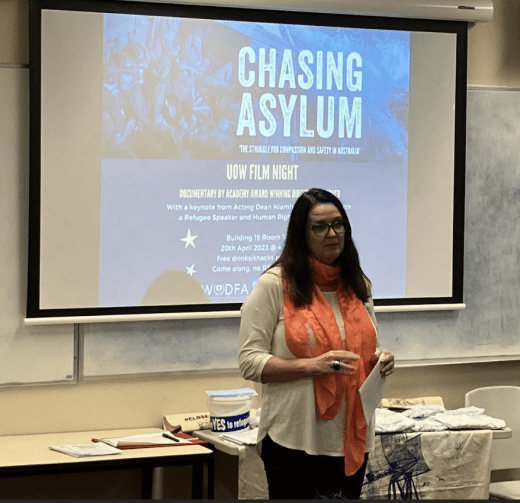
Behind the Scenes
Mareen’s proactive approach to organizing her project led her to reach out to local refugee initiatives and her professors to connect with relevant individuals for her film screening and panel discussion event, which included speakers, legal advocates, and academic experts on forced displacement and the international refugee regime.
For the project, Mareen required several resources which she was able to obtain through various means. The venue for the screening was provided by the university for free due to Covid-related changes. To screen the chosen documentary, Mareen contacted the directors of two relevant documentaries, and after speaking with them, was granted free access to Chasing Asylum by Eva Orner. For catering, the Refugee Action Collective Illawarra donated funds to cover the costs of a small buffet. Advertising for the event was done through the NGOs’ social media channels, and the student Diplomacy & Foreign Affairs club helped produce the advertising material.
Challenges
Prior to the event, Mareen was concerned about the potential emotional impact of the documentary on the audience, especially the refugees who attended. She had a conversation with Amro, a refugee speaker from Syria, and offered him the option to skip the film if he found it too distressing. However, he was eager to participate and ended up being deeply moved by the film’s content. The event was well-attended, which was surprising given the challenges of organizing events during the pandemic. The audience included former refugees and members of the wider community, which was heartening and demonstrated the public’s interest in a topic that often receives little attention.
Lives Touched
During the documentary screening, some members of the audience expressed shame at being Australian and allowing the government to treat refugees poorly. Although this was not the intended reaction, it sparked a discussion on accountability and personal involvement in the issue of refugee treatment.
The panel discussion asked the question, “What can be done about this?” and highlighted the importance of a critical, engaged civil society. Mareen found this unexpected outcome to be inspiring and a successful mobilization towards activism.
Next Steps?
Mareen plans to hold another event similar to the previous one later in the year. She aims to screen Simon Kurian’s most recent documentary BEHROUZ at the GALA cinema in Warrawong, Wollongong, with council funding. The film features Behrouz, an Iranian journalist who fled the Iranian regime and spent four years in an offshore detention center in Manus Island, Papua New Guinea. Both Simon and Behrouz will be present for a Q&A session after the screening. Mareen acknowledges that it may be challenging for those outside Australia to participate but encourages anyone with connections or networks in Australia to reach out and get involved. She believes that documentary screenings and panel discussions on this topic can raise awareness of strict immigration regimes like Australia’s beyond its borders.
If interested, please take a look at the following websites for more information on the partners of this project: Refugee Action Collective Illawarra and Human Rights 4 All.


